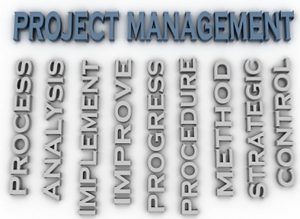5 Habits of Successful Construction Project Managers

Article Link: https://www.forconstructionpros.com/profit-matters/article/12143704/5-habits-of-successful-construction-project-managers
By: Andreas Tremel
Technological advancement has opened up many opportunities for the construction industry. However, the construction industry also faces many challenges: projects are becoming more and more complex; economic uncertainty; a myriad of stakeholders; extremely aggressive global competition; and high pressure to not just deliver successful projects but deliver them on time and within budget.
These and many other factors put a lot of pressure on the construction manager, as even the smallest of mistakes can cause a delay of the whole project schedule as well as additional costs. Utilizing project management methods effectively can help the building industry reduce the risk of failure and deliver projects more efficiently.
Managing costs, change and risks
The most important aspect in construction is the cost factor as it determines the financial success of a project and affects, and is affected, by other project variables such as scope, time and quality. Construction project managers need to plan the budget accurately but also need to constantly compare the estimated costs with the actual costs and adjust the budget plan accordingly.
Failure to do so can cause a lot of problems in the long run. Remember that it is much easier to deal with a 10% budget overrun in the beginning than a 50% overrun at the end, when it is too late to turn it around.
Changes and risks also pose as threats to the budget plan. For example, the subcontractor might increase prices or there might be delivery delays, both of which have an impact on the time factor in addition to the cost factor. There are risks that you can anticipate and control, but there are also unforeseeable events such as natural disasters or accidents. You cannot control these events, but you can prepare a plan B (or C or D).
A lot can and will go wrong in construction which is why comprehensive conflict and crisis management skills are necessary to complete projects successfully.
Time and task management
As construction projects are getting more complex and with a lot of stakeholders involved, it is absolutely essential to have a clearly structured task plan and schedule. The first step is to identify the more general tasks and then divide these tasks into more specific sub-tasks.
It is also important to remember to include tasks that precede the actual construction, such as removing vegetation to clear up the site.
As for the scheduling of the tasks, you should always prioritize tasks and factor in eventual dependencies as some tasks may run parallel whereas others can only start if the predecessor tasks are finished.
Also, include milestones and deadlines which serve as guidelines as well as motivation to the construction team. This may all sound like it is a given for experienced construction managers, but meticulous planning takes a lot of time and effort and is not something that is done just like that.
Evaluating efficiency and productivity
As construction projects are so diverse and productivity depends on so many different variables there is not one ultimate productivity measure. However, every project can and should regularly compare actual with target performance. This will help you identify unproductive activities and processes and find a solution to increase efficiency and effectiveness immediately.
Construction managers can take inspiration from software project management methods such as ‘Scrum’ which helps keep complexities and risks minimal. So-called ‘sprints’, which are essentially small projects that have a duration of no more than a month, keep the team focused, as at the end of each sprint they have to present a complete product or a specific result. This will ensure that the construction staff works efficiently and productively to meet these requirements.
Delegating and outsourcing
A great project manager always knows how to delegate and outsource tasks. Allocating the right people to the right jobs is extremely important, especially in construction. You need to assign people according to their skills and expertise — and their availability.
Managing resources means delegating tasks to the right kind of people at the right time, often across projects at different construction sites. This is a particular challenge in construction, as only some staff possess the certain skills or expertise needed for certain tasks but are needed at several sites often at the same time.
Resource management is essential to be able to keep an overview of who has capacities left and who can’t take on any more work load. However, there are also tasks and activities that you can outsource such as bookkeeping and other administrative tasks. This can increase the efficiency of processes and operations while the construction manager can concentrate on key activities of the project.
Embracing collaboration and communication
Globalization has led to more rigorous competition for the construction industry, but it has also opened up the labor markets. Construction managers have access to a diverse and highly skilled global workforce. This allows them to design a more flexible and cost-efficient personnel plan and make use of a talent pool, which was not available to them before.
New collaboration and communication technologies support this trend of remote teams but also meets the increasing demands of clients to immediate and easy access to information updates regarding the construction project.
As there are so many stakeholders in a construction project, effective communication is vital for the project’s success. In fact, most project failures are a result of insufficient communication between parties concerned. So to ensure that communication doesn’t break down, you need to create a clear plan from the very beginning, outlining the communication process and the method, and make sure that everyone knows and sticks to it.
Designating one person as the communicator can channel the communication between teams and help avoid misunderstandings.

Professional Recruiter Associates